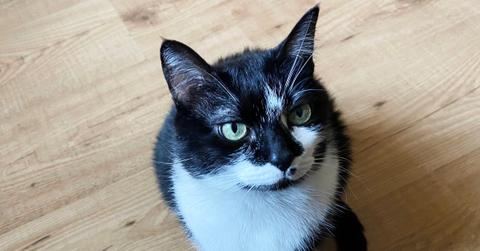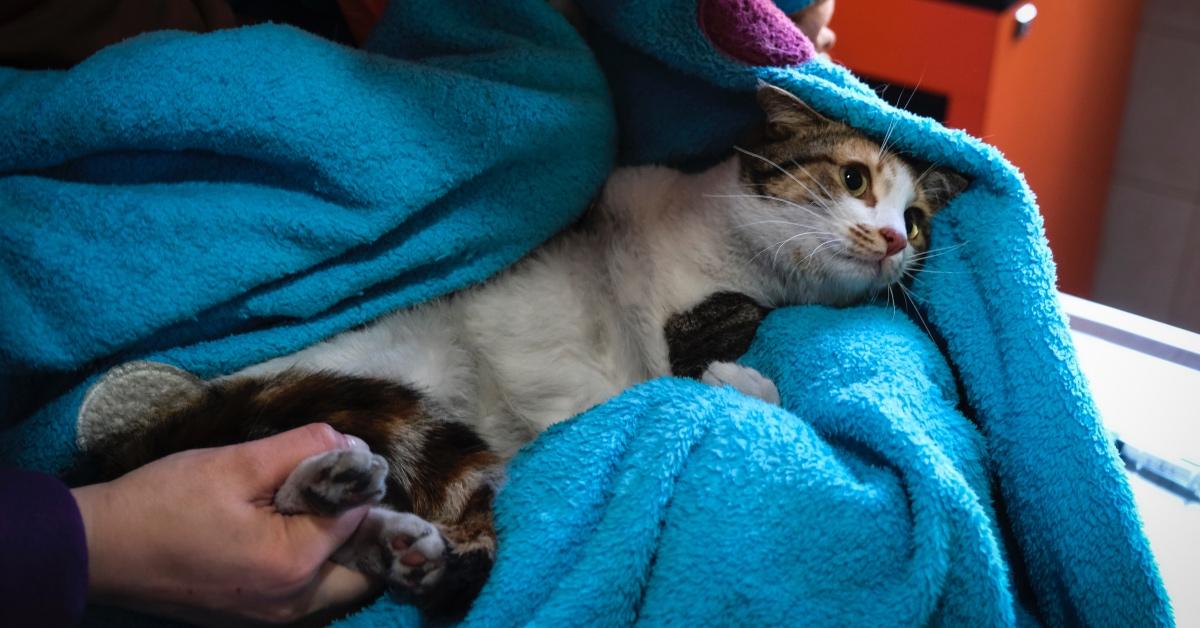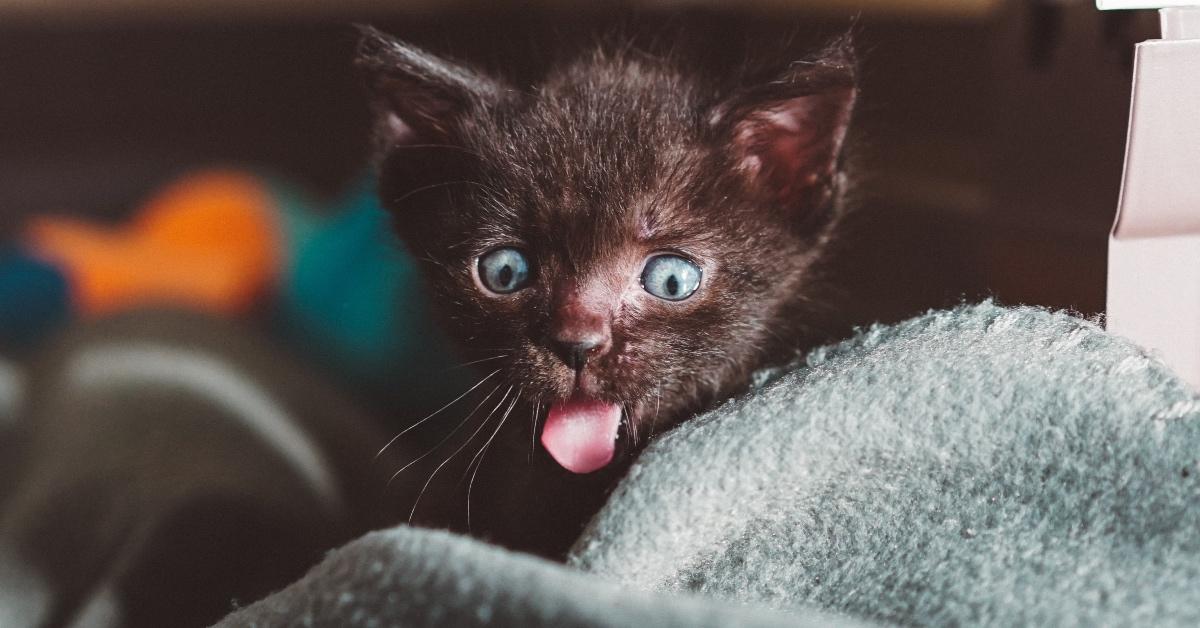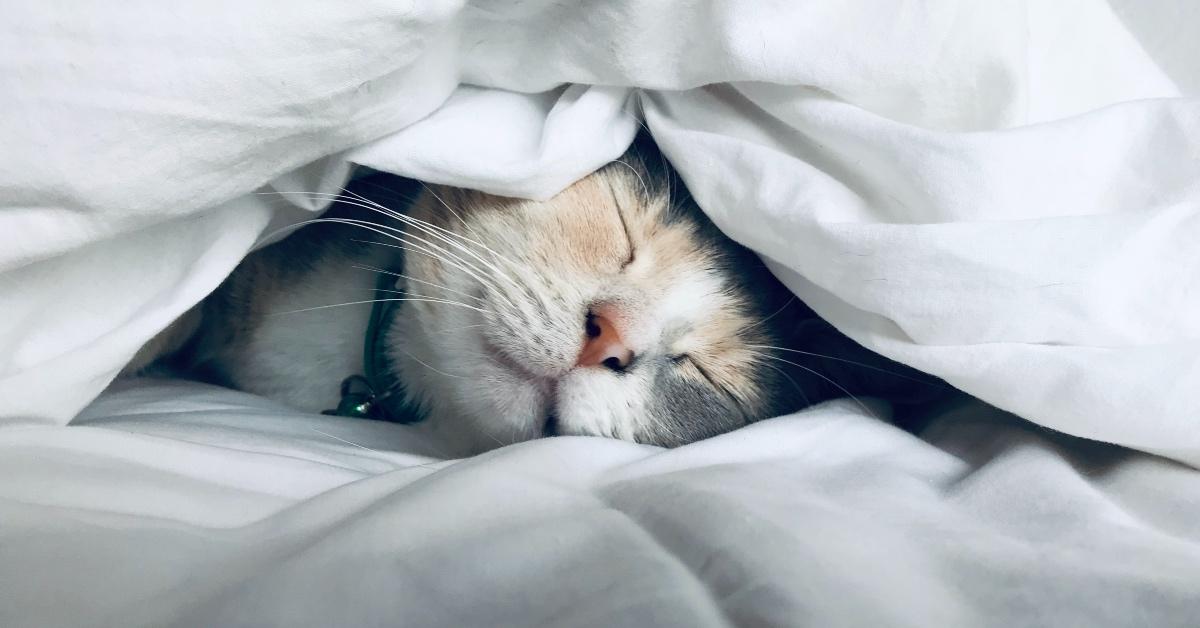Some Cats Have Disabilities, but Can They Have Down Syndrome?
Published July 12 2023, 12:12 p.m. ET

Like any good pet parent, you want to ensure that your cat or dog gets the best possible quality of life. Frequently, animals with disabilities or special needs are the last to be adopted from shelters, making them in dire need of extra love and attention.
Sometimes cats with disabilities exhibit certain behaviors or have physical features that make people wonder: can cats have Down Syndrome? According to the Centers for Disease Control and Prevention (CDC), 6,000 babies are born with Down Syndrome a year in humans. Keep reading for what you need to know about cats, Down Syndrome and tips to take care of a cat with special needs.

So, can cats have Down Syndrome?
Cats cannot have Down Syndrome. However, the prominence of social media stars such as Monty the cat, who was born with a chromosomal abnormality that left him without a nasal bridge bone, have raised the question in recent years.
For those who don't know, in humans, Down Syndrome is a genetic condition in which people have an extra or partial copy of chromosome 21. Cats cannot have Down Syndrome because they don't have chromosome 21, according to Cats.com. Technically, cats only have 19 chromosomes!
The phrase "feline Down Syndrome" has become popular thanks to, in part, feline social media stars, but it's not a veterinary term, says Hill's Pet.

Cats can exhibit symptoms similar to Down Syndrome.
Just because cats cannot have Down Syndrome doesn't mean they aren't affected by genetic disorders or illnesses. If your cat is exhibiting any of the following symptoms, per Purina, it's a good reason to reach out to your veterinarian for testing.
- Wide-set, upturned eyes
- Unusually small or oddly shaped ears
- Behavior different or strange than other cats
- Vision issues
- Motor dysfunction
- Low muscle tone
- Heart problems
- Hearing loss
- Flat or upturned nose
Well-known genetic disorders or congenital disabilities in cats include Cerebellar hypoplasia, where the brain's cerebellum fails to develop properly, and cleft lip and palates. Cats can also have ataxia, or incoordination within the nervous system that causes a cat to wobble, blindness, deafness, vertigo, or even spinal cord issues, says Pet MD.

Here are some tips for caring for a cat with special needs.
If you plan on adopting a cat with disabilities or your cat has developed disabilities due to age or circumstances beyond your control, great news! There are plenty of ways to help your feline friend live a comfortable, happy, healthy life. Here are some of our best tips for caring for cats with special needs.
Catster suggests using an elevated feeding station to help cats with mobility or balance issues. This way, your cat doesn't have to bend over to reach their food or risk knocking it over! It's also a good idea to modify the litter box so that your cat can easily get in and out of the box. Catster also suggests using puppy pads and a holding tray for cats that cannot stand to use the box.
Additionally, Catster recommends assessing your furniture and investing in stairs or ramps. Some cats will have difficulty getting up or down stairs or jumping onto couches to sit with their humans, so it's important to make sure that the furniture situation in your home is accessible so they don't hurt themselves!